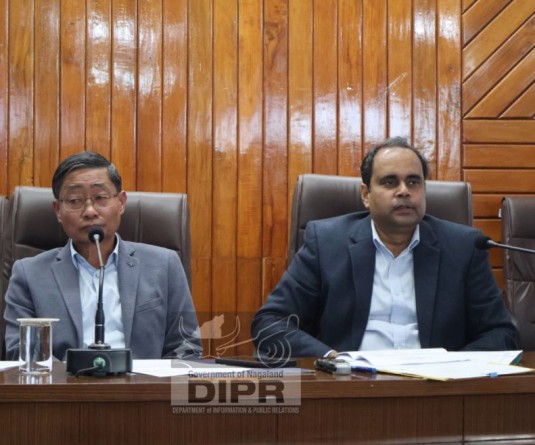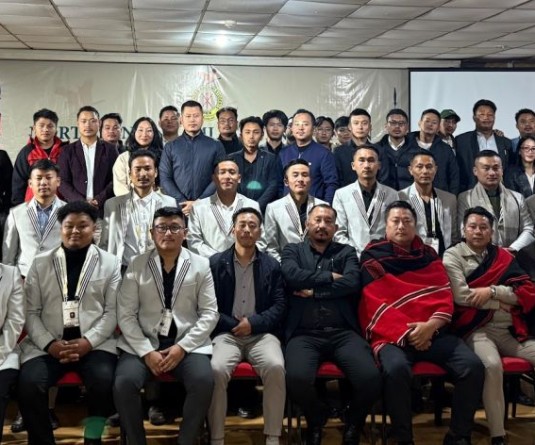
Morung Express News
Dimapur | March 26
“Peace is the absence of direct/personal violence and the presence of social justice.” This definition of peace by Johan Galtung was highlighted by Dr. Achan Mungleng, Independent Researcher, while discussing the core concepts of peace and the importance of peace education, during a workshop on Equality and Empowerment.
It was organised by Indigenous Women Forum North East India (IWFNEI), Naga Women Hoho and Naga Indigenous Women Association (NIWA) in collaboration with Henry Martyn Institute (HMI), Hyderabad, from March 22 to 26 at Don Bosco Center, Duncan Bosti, Dimapur.
Dr. Mungleng asserted that peace is the absence of direct, organised and physical violence as well as the absence of structural violence, and emphasized the promotion of human rights to ensure a comprehensive notion of social justice. The core idea of peace education is to learn about peace and to learn for peace leading to change in mindset/thought process. Calling for education to be a transformative process, Dr. Mungleng stated that “it cultivates knowledge base, skills, attitudes and values that seek to transform people’s mindset, attitudes and behaviour that, in the first place, have either created or exacerbated violent conflicts.”
Transformation can be implemented by building awareness and understanding (cognitive), developing concern (affective) and challenging personal and social action that will enable people to live, relate and create conditions and systems that actualise nonviolence, justice, environmental care and other peace values (active), highlighted Dr. Mungleng.
A dialogue initiative between men and women in relation to women’s role in social, cultural, and economic governance issues where representatives from Naga Missionary Movement, Naga Hoho, Dimapur Naga Council, NPMHR, DNSU and women members from various organizations participated on March 24. The dialogue was moderated by Ramesh Moon from HMI, Hyderabad.
The dialogue deliberated upon the areas where Naga women’s participation or engagement has increased over the last decades, the changes in the roles women and their participation in economic, social, political, cultural, and religious lives. The representatives were divided into four groups and given time to discuss given concerns. Further deliberations ensued in the sectors that have less women’s participation or engagement- media, male dominated organisations, politics, and the position taken by indigenous peoples forum internationally related to women’s participation in economic, social, political and religious areas.
Viewing that considerable progress has taken place over the last few decades, the representative cited the various areas such as education, religion, administrative, security, traffic police, entrepreneurs in various fields, both in urban and rural areas, has seen the progress of women in the past few years.
Women are faring “much better than” men in the hospitality sector, tourism, and activism viewed some of the representatives. Others viewed that Naga women involved in civil society are better in peace process, peace activities and good in decision making.
Apart from the various examples in entertainment, sports, music and professions where Naga women are excelling, the dialogue highlighted the absence of women in some of the most important institutions of society such as the Nagaland State Assembly or most decision making bodies in towns or villages.






